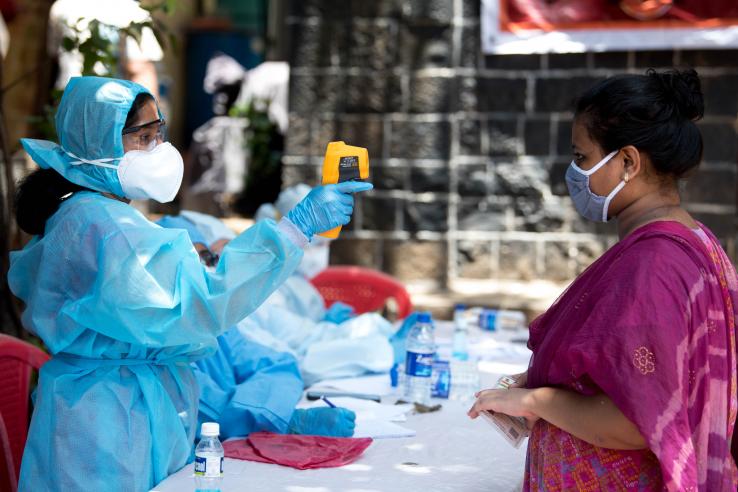Displaying 3586 - 3600 of 8174
Person
Bruce Sacerdote is the Richard S. Braddock 1963 Professor in Economics at Dartmouth College. His research examines the impact of education on income, health, and well-being; the effect of relocation after Hurricane Katrina on students’ educational outcomes; why there are fertility differences across...
Blog
Economists have developed an emerging body of evidence that holds important lessons for overcoming COVID-19 information constraints, combating misinformation, and building trust in health systems. These insights may also help to improve delivery and increase uptake of COVID-19 vaccines. This op-ed...
Person
Chris Blattman is the Ramalee E. Pearson Professor of Global Conflict Studies at The University of Chicago, in the Harris School of Public Policy, as well as a research associate at NBER. He studies why some people and societies are poor, violent and unequal, and what (if anything) aid or...
Person
Eric Bettinger is the Conley DeAngelis Family Professor at the Stanford University Graduate School of Education. He is the Director of the Center for Educational Policy Analysis and the Director at the Lemann Center for Brazilian Education at Stanford, and a Senior Fellow at the Hoover Institution.
Person
Joseph Doyle is the Erwin H. Schell Professor of Management and a Professor of Applied Economics at the MIT Sloan School of Management and Co-Chair of J-PAL's Health sector.
Person
Judd Kessler is a Howard Marks Professor at The Wharton School at the University of Pennsylvania. He investigates the economic and psychological forces that motivate individuals to contribute to public goods inside and outside the workplace, with applications including organ donation, worker effort...
Person
Nick Ryan is an Associate Professor of Economics at Yale University and Co-Chair of the Evidence to Scale Initiative.He studies energy markets and environmental regulation in developing countries. Energy use enables high standards of living, but rapid, energy-intensive growth has caused many...
Person
Marygracia Aquino Pérez is a Survey Associate at J-PAL LAC where she works as a Fieldwork Coordinator in a project assessing the impact of information campaigns on the returns to education in the Dominican Republic.
Blog
Jaringan Agen Layanan Keuangan Tanpa Kantor dalam Rangka Keuangan Inklusif (Laku Pandai) diluncurkan pada tahun 2014 dengan misi mengakselerasi inklusi keuangan di Indonesia. Jaringan agen ini menjadi perpanjangan tangan bank untuk memberikan layanan keuangan pada masyarakat yang tinggal di daerah...
Person
Diego Haro is a Spring Policy and Communications Intern at J-PAL Global where he supports the Policy and Communications team on various projects, ranging from social media to J-PAL's research initiatives.
Person
Mariam George is a Research Coordinator at J-PAL Middle East and North Africa, where she is currently working on impact assessment of the Ultra Poor Graduation Program developed by BRAC in collaboration with Sawiris Foundation for Social Development in Egypt and Training NGO’s at the Irregular...
Person
Nadila Trisie Arabella is a Training Associate at J-PAL Southeast Asia where she is currently developing and delivering trainings for researchers, policymakers, and development professionals on conducting rigorous evaluation and utilizing evidence for decision making.
Person
Alfa Fatimah is a Research Associate at J-PAL Southeast Asia, where she works on a project investigating the impact of seasonal migration on the welfare of immigrants' families as well as the barriers to migration.
Person
Amosse Ubisse is a Research Associate at J-PAL Africa where he works on the mHealth Project in Mozambique. Prior to joining J-PAL Africa in 2014, Amosse worked at the National Institute of Statistics in Mozambique, compiling the national accounts and global indicators.
Evaluation
Researchers in France studied whether government-provided recruiting services would impact firms’ job postings and hiring by lowering recruiting costs. The recruiting services decreased firms’ hiring costs and increased firms’ job postings and hiring, including much sought-after permanent-contract hires.


